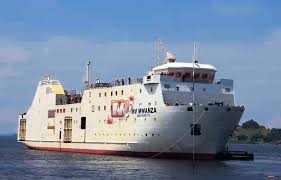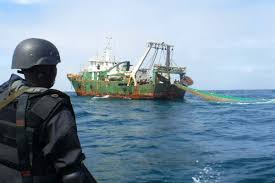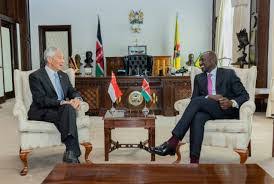Africa’s Maritime Independence: Economic Imperative of a Regional Shipping Line

Tanzania’s MV Mwanza floats. (Photo/ Courtesy)
By Andrew Mwangura
Africa stands at a pivotal moment. The continent is forging ahead with visionary projects—from the African Continental Free Trade Area (AfCFTA) to massive infrastructure corridors linking its interior to its coasts.
Yet, a critical weakness threatens to unravel this progress: the near-total absence of African-owned shipping.
Establishing a regional shipping line is not a mere commercial ambition; it is an urgent economic necessity to reclaim sovereignty and unlock hundreds of billions of dollars in trade.
The numbers reveal a costly paradox. African nations pay a staggering $15 billion annually in freight charges to foreign carriers, yet control less than 1% of the world’s shipping capacity.
This, while generating nearly 20% of global seaborne trade. The legacy of this colonial-era system is a geographic absurdity: cargo moving between African ports often travels through European or Asian hubs.
A shipment from Mombasa to Lagos might first detour through Rotterdam, turning a week-long voyage into a month-long odyssey—all at Africa’s expense.
This inefficiency directly undermines the continent’s integration agenda. Consider the strategic corridors that form the backbone of Africa’s economic future: the Lobito Corridor, the Lapsset project, the Northern Corridor, the Central Corridor, the TAZARA link, and the Djibouti-Dakar route.
Each depends on efficient maritime connectivity. Without it, they remain hostage to the scheduling priorities and pricing whims of foreign carriers, who treat African trade as a secondary market.
The potential is immense. The members of MOESNA and AfCFTA represent a market of 1.3 billion people and a combined GDP exceeding $3 trillion.
Yet intra-African trade languishes below 15%, dwarfed by Asia’s 59% and Europe’s 67%. The reason is simple: prohibitive shipping costs and unreliable schedules make it cheaper for an African country to trade with Europe than with its neighbor.

A dedicated regional shipping line could slash transit times by 40-60%, cut costs by half, and guarantee space for African exporters who are too often sidelined when global demand spikes.
The benefits would ripple far beyond the docks. A vibrant maritime industry is a powerful economic multiplier, generating jobs in port operations, logistics, ship maintenance, and marine insurance.
Nations like Singapore and South Korea built their modern economies on such foundations.
An African line would repatriate not just freight revenues, but also the financial services, technical expertise, and—crucially—the data sovereignty that comes with controlling your own trade flows. It would provide the leverage to negotiate better port fees, fuel contracts, and insurance rates.
To make this a reality, a robust regulatory framework is essential. Strengthened cabotage laws—reserving domestic maritime trade for national vessels—are standard practice in the U.S., China, and Japan.
Africa’s lax enforcement has stifled its own maritime development. Strict cabotage rules across AfCFTA would create a guaranteed base of cargo, fostering local expertise. An African Maritime Charter could harmonize regulations and provide the legal certainty needed to attract billion-dollar investments.
Skeptics will cite a lack of capital and expertise. This view is both defeatist and ahistorical. It ignores the continent’s success in aviation, where carriers like Ethiopian Airlines are global competitors.
Start-up challenges can be overcome through phased strategies: leasing initial vessels for high-volume routes, forming technical partnerships, and leveraging capital from African sovereign wealth funds and development banks. The initial investment pales in comparison to the annual $15 billion drain.
The choice for African leaders is clear: continue paying a de facto colonial shipping tax, or seize control of their maritime destiny.
Every year of inaction means billions lost and integration delayed. The magnificent infrastructure corridors remain hamstrung without efficient sea links.

The AfCFTA’s promise of a single market is hollow when shipping a container across Africa costs more than shipping it to Europe.
A continental shipping line is the missing link in Africa’s economic architecture. It is not a luxury, but a foundation for true sovereignty and prosperity. The time to build it is now.
The writer is a policy analyst specializing in maritime governance and blue economy.




